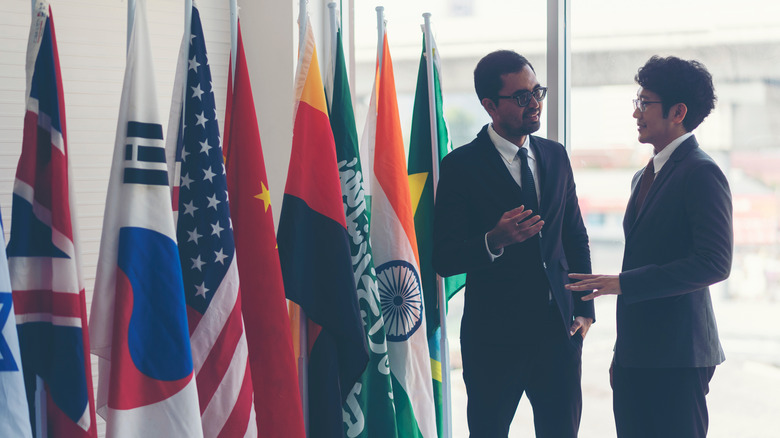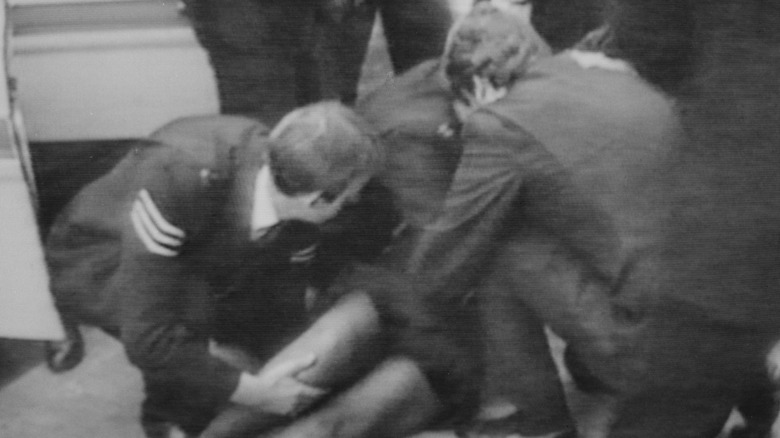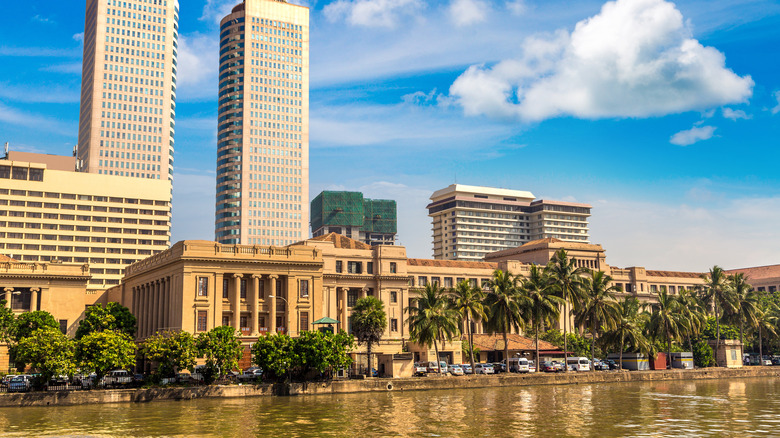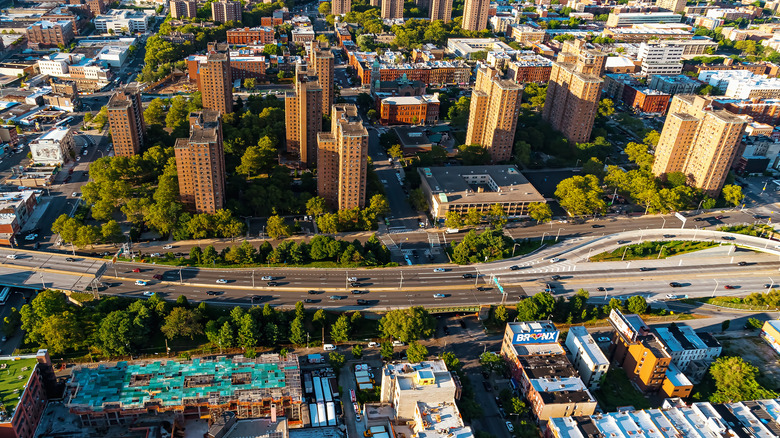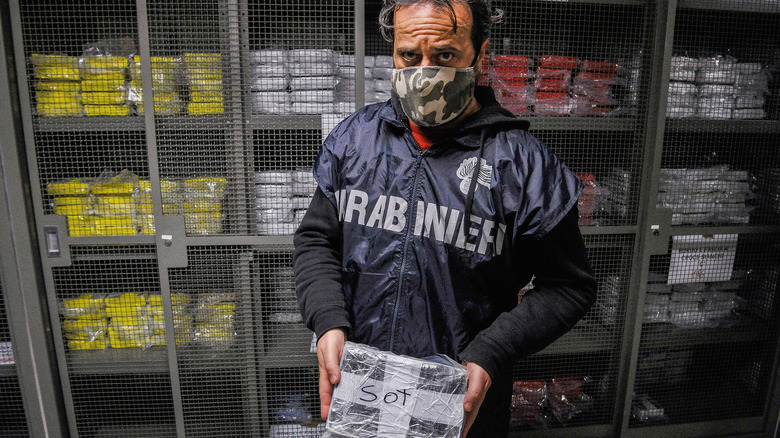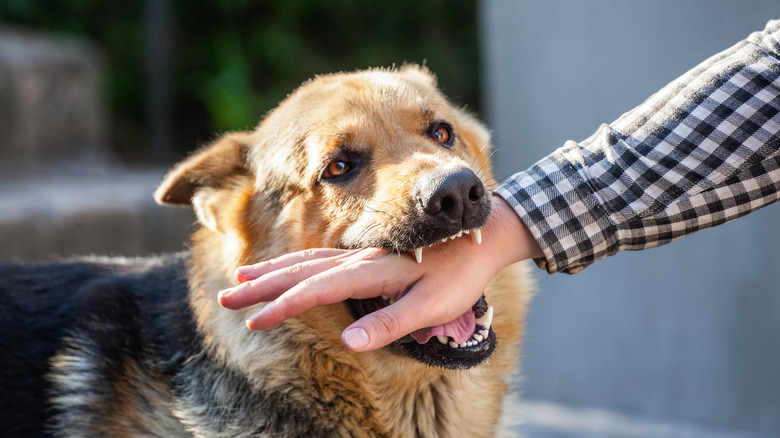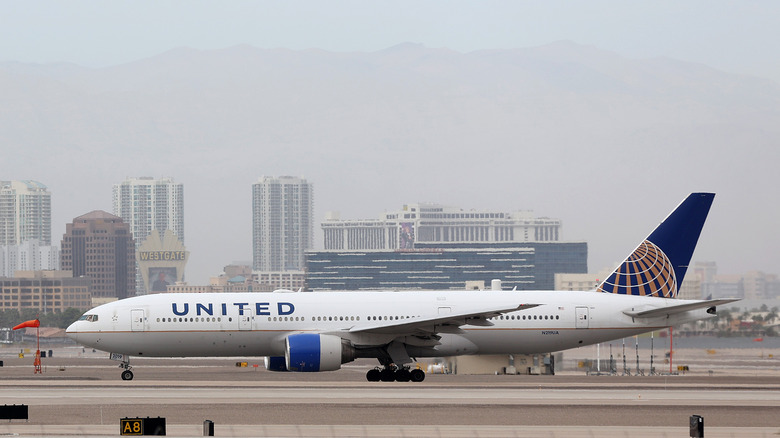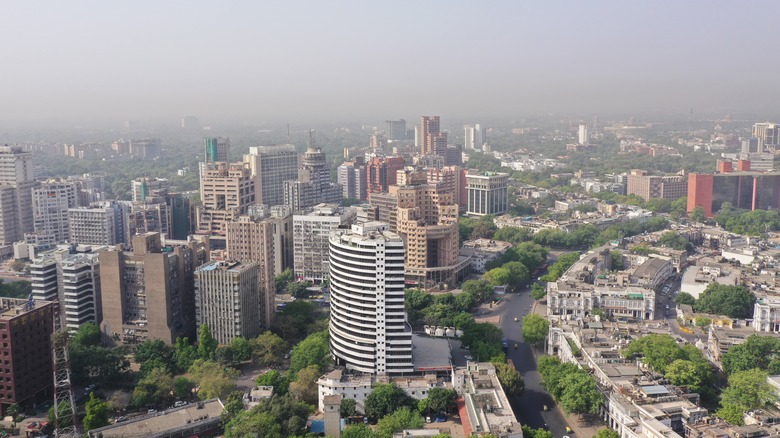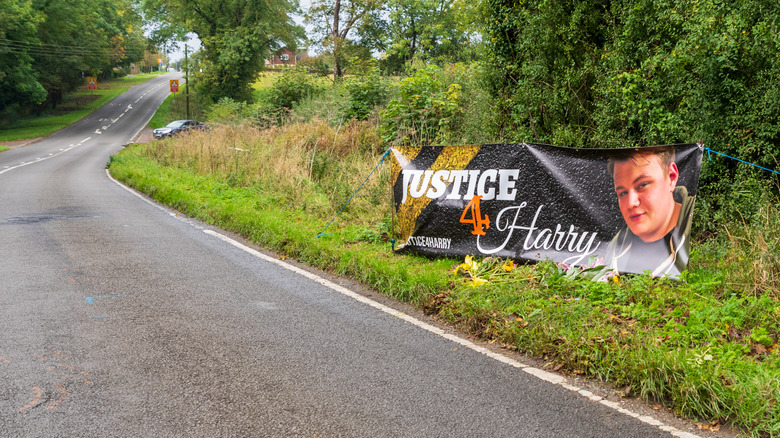The Worst Crimes Committed By Diplomats
When many people hear the words "diplomatic immunity," they immediately think of the classic scene in the 1989 Mel Gibson and Danny Glover film "Lethal Weapon 2" in which a South African criminal invokes his diplomatic immunity only to be shot down by Glover's character, Roger Murtaugh, followed by the sublime line: "Just been revoked." In reality, Roger Murtaugh would have gotten himself into a mountain of trouble for pulling that trigger, because many foreign diplomats do indeed enjoy an immense amount of protection against the law even when they have broken it. This is because the nation in which the diplomat commits a crime hopes that their own citizens posted overseas will enjoy the same level of protection — it's a concept based on reciprocity, per ThoughtCo, and that was enshrined by the Vienna Convention on Diplomatic Relations back in 1961.
As shocking as it seems, diplomatic immunity is no mere movie trope. Myriad diplomats have committed all sorts of crimes, from the odd to the egregious, and have ended up with little to no punishment. In fact, in most cases, the only consequence the diplomat faces is removal from the nation to which he or she had been dispatched and a return to the home country. And diplomatic protections against prosecution don't even stop with the diplomat; often the immunity against criminal proceedings extends to members of the person's family, as we'll see. Here are 12 cases in which diplomats broke the law and got away with it.
The murder of Yvonne Fletcher
On April 17, 1984, a 25-year-old British policewoman named Yvonne Fletcher was shot to death on the streets of London, per the BBC. The basic facts of the case are — and were, even at the time — quite well understood: The shots had been fired from a window of the Libyan embassy. They came from a pair of Sterling submachine guns wielded by agents of the government of Libyan ruler Colonel Muammar Gaddafi. The shooters were aiming at a throng of anti-Gaddafi protestors who had congregated around the embassy. And in addition to the slain Fletcher, who had been dispatched to the location to help keep the peace during the protests against the dictatorial Colonel Gaddafi, many other people were also injured by the spray of bullets. And at least one of the men who either pulled one of the triggers or else was at least actively supporting the shooters was known to authorities: a man named Saleh Ibrahim Mabrouk.
But because the deadly fusillade came from within an embassy that was effectively off-limits to British police, the shooters could not be arrested. And as they were quickly whisked off and taken back to Libya, they never would be. At least not for more than 30 years. In 2015, Mabrouk, who had returned to the U.K., was arrested for the killing of Yvonne Fletcher, but he was released again two years later, the case unable to proceed based on national security concerns.
Burmese ambassador murders his wife
More than 50 years ago, on October 15, 1967, an ambassador shielded by diplomatic immunity committed and got away with one of the most shocking crimes imaginable: the blatant murder followed by the subsequent burning of his own wife. Per the Sunday Times, W.K.H. Sao Boonwaat was the Burmese ambassador to Sri Lanka at the time (recall that Burma has since been renamed as Myanmar, a change that was initially rejected by many in the international community but has since gained general acceptance) and he was thus shielded from prosecution under the laws of his host nation. And clearly Boonwaat knew of his protected legal status, for he carried out his crimes, quite literally, in the clear light of day. Enraged at his wife, Shirley Boonwaat, W.K.H. Sao Boonwaat shot her to death in broad daylight on that fateful Sunday. Ghastlier still, he then proceeded to cremate he dead body on the grounds of his official ambassadorial residence, again in plain sight of multiple people.
No official record of Shirley Boonwaat's death or cremation were ever registered, and Boonwaat was never arrested or charged with any crimes despite there being no doubt about what he had done. 10 days after the killing and cremation, W.K.H. Sao Boonwaat departed from Colombo, Sri Lanka's capital, and returned to Burma. He would never return but he would also never face justice for a murder and its grisly coverup, either, his diplomatic status protecting him.
South Sudanese diplomat gets away with rape in NYC
In a truly disgusting case of diplomatic immunity shielding someone against prosecution for a crime totally unrelated to his or her official duties, a South Sudanese diplomat got away with a violent sexual assault committed against a woman in New York City. In the late summer of 2022, an allegedly drunken Charles Dickens Imene Oliha followed a woman down the street of a Bronx neighborhood and then forced himself into her apartment after her, per reporting from the Daily Mail. He then proceeded to rape the woman not once, but twice, before leaving the scene. The victim promptly reported the crime and the 46-year-old Oliha was arrested by New York City police officers no more than an hour later. But then, a day later, the married father of four was released after citing his status as a foreign diplomat. Worse still, Oliha then slipped out of America entirely, fleeing safely back to South Sudan.
The South Sudanese government released a statement saying that Oliha had been immediately recalled to South Sudan and suspended from his official duties, but that did nothing to get justice for the victim of his violent assault, as Oliha is almost sure to face no punishment in his home country and is unlikely to return to America, where he could indeed face prosecution and sentencing for his acts. Oliha had long been known as a public drunk and nuisance prior to the rape.
Afghan diplomat rams American woman with his car
At one point in his career, Shah Mohammad Dost was the foreign minister of Afghanistan, a cabinet-level position of great import and influence, and evidently that sense of importance more than went to this man's head. Thus it was that he committed an attack that would have landed a "regular" person in jail for a long time, yet, being a diplomat, Dost went unpunished. At the time of the incident, which took place in July of the year 1987, per UPI, Dost held another objectively important role: that of helping negotiate an end to the then-ongoing Afghan civil war, which had been exacerbated, rather than ended, by a Soviet invasion of the nation in 1979, per the State Department. While searching for a parking spot in a neighborhood in Queens, Dost came across a woman, 42-year-old Margaret Curry, standing in an open spot into which she was directing her boyfriend to park. Dost told the woman he was an Afghan diplomat and demanded that she move and, when she did not, he rammed her with his vehicle, backing the 1978 Lincoln — a huge vehicle, in his case with diplomatic plates — into Curry.
Curry would require hospitalization and treatment for her wounds, while Dost would get away without so much as a proverbial slap on the wrist despite the victim having filed an official police report. He was shielded by diplomatic immunity and an Afghan government unwilling to allow him to be prosecuted.
Ecuadorian diplomats smuggle cocaine to Europe
When a package is marked with a diplomatic seal, it is supposed to be able to travel across international borders without its contents being disclosed and without risk of search or seizure. Perhaps the most famous example of a diplomatic seal being used is when Vladimir Lenin returned to Russia from Europe by traveling anonymously in a sealed train, re-entering a nation from which he had been banned and helping foment the Russian Revolution, per The New Yorker. In practice, in more modern times, diplomatic seals are usually reserved for parcels containing official state documents, but there are notable exceptions — and at times quite questionable ones at that. One such example came in 2012 when a group of Ecuadorian diplomats attempted to ship 40 kilograms (or 88 pounds) of cocaine from Ecuador to Italy in Ecuador's official diplomatic pouch, per Foreign Policy.
The illegal drugs were found and seized by Italian authorities, who estimated their street value at the time would have been in the neighborhood of more than 2 million Euros. Multiple Ecuadorians were later arrested in connection to the attempted smuggling of the drugs, but it was unlikely that this one instance was an isolated event. Not long before the cocaine was discovered, Ecuador had begun to use what it called "extraordinary diplomatic pouches" that allowed for the transfer of larger objects than paperwork without the contents being reviewed. The cocaine at issue was found less than six months later.
Ambasador from Barbados threatens international incident if his violent dog is put down
Generally, when a dog is known to be violent, that dog is put to sleep, and that's the end of the story, no matter how sad it may be to think of an animal euthanized for behavior that is ultimately well within the natural order of things, domestication aside. But when said dog belongs to a foreign diplomat, the same rules just don't apply, it turns out. Such was the case with the German Shepherd belonging to the ambassador to the United States of America from Barbados back in 1975, according to contemporaneous reporting from The New York Times. The dog, owned by the ambassador Waldo Emerson Waldron-Ramsey, was known to have bitten as many as seven or eight people in the New York City-adjacent town of Pelham in a four-year period. Any normal citizen's dog would have been seized and put down with just two or three such incidents, but Waldron-Ramsey cautioned that any action taken against his pet would lead to a real incident.
Per the Times, on learning that police were under orders to shoot his dog if it was seen in public off a leash, the ambassador sent a letter to Pelham's mayor reading in part: "The mind boggles, Mr. Mayor to contemplate the tragic, calamitous consequences of a personal nature which would ndturally flow from any such aberration. And this consideration bespeaks nothing of the possible international consequences."
Diplomat smokes on plane, makes terrorism jokes, and walks away
A Qatari diplomat traveling on a commercial flight in the United States showed himself to be a model of selfishness, immaturity, and smugness when he broke multiple laws in a mere matter of minutes, thumbed his proverbial nose at authorities and America in general, and then departed the country scot-free thanks to his diplomatic status. Per the Austin American Statesman, in the early fall of the year 2012, Mohammed al-Madadi, a diplomat from Qatar, was on a flight bound for Denver when decided he wanted to have a smoke right away, no time to wait for landing. So he entered a lavatory on the plane and, against well-known federal law, he lit up his pipe. On exiting the smoky restroom, al-Madadi was confronted by air marshals, at which point he made a witless jest that he had been trying to light a shoe bomb on fire, referencing the so-called "Shoe Bomber" Richard Reid whose actions in 2001 — when he tried to detonate explosives hidden in his shoes, per the FBI — changed the way we all have to pass through TSA security checkpoints ever since (via NPR).
The remarks prompted the scrambling of two F-16 fighter jets to escort the passenger plane to its destination, but upon arrival in Denver, whereas most people would have been arrested and in serious trouble, al-Madadi was released from the detention he had faced on the flight and he was soon on his way back to Qatar having faced no penalties.
$400,000 in unpaid rent in NYC
For many years starting in the early 1980s, a group of diplomats from Zaire (now known as the Democratic Republic of the Congo, per Britannica) lived for free in downtown New York City. Now, this is not to say they were doing this legally, it's just that the group of diplomats from Zaire's mission to the United States simply stopped paying rent to the private landlord who owned the high-rise apartment building they were occupying. And what's worse, per Reader's Digest, they did so with full protection of the United States State Department and even a circuit court who reviewed the case. Despite the fact that the diplomats racked up more than $400,000 in owned rent (which is more than $900,000 when adjusted for inflation, per Inflation Tool) the landlord was told there was really nothing that could be done to the group because of their diplomatic immunity.
Finally, the landlord simply turned off the water and power at the properties that were so far in arrears, and eventually the diplomats left, apparently later working out an agreement to settle at least some of their debt to the building's owner. Frustratingly, this was hardly an isolated case at the time. Per the LA Times, in 1995, U.N. Secretary General Boutrus Boutros-Ghali stated that 32 of the then 185 members of the United Nations owed at least some amount of unpaid fees to their host nations, with several owing millions in unpaid rent and other fees.
Iranian diplomats slaughter a sheep in London
Residents of an upscale London neighborhood were horrified when a sheep was slaughtered on the streets of their suburban borough and then cooked over an open flame in the backyard of a local residence. The incident took place in September of the year 1984, per UPI, and it involved several members of an Iranian diplomatic mission, Iran then being just a half decade into its post-revolution, post-Shah regime days. As neighbors later reported, several Iranian diplomats dragged a sheep out onto the streets of the quiet suburban neighborhood and then one slashed its throat using a ceremonial sword. After the animal bled out in full view of the public, they brought it into the yard of a diplomat's residence where they cooked the sheep over an open fire, sending pungent smoke wafting over nearby properties.
Local residents called the police to complain of the slaughter and cooking, which was tied to the Eid Al Fitr celebration ("Feast of the Slaughter") which traditionally marks the end of Ramadan, per Britannica, but when the Iranians invoked their rights of diplomatic immunity, the police left without charging the men with any crimes related to the inhumane act, though several had been committed.
Saudi diplomat unpunished after serial rape
In 2015, a Saudi ambassador to India was accused of a horrific crime: He, along with a group of other men, held a pair of Nepalese maids as prisoners for approximately two months, and during their captivity in his luxury apartment, the women were raped dozens and dozens of times, per Business Insider. The diplomat was residing in the town of Gurgaon, adjacent to Delhi, and while local police looked into the accusations, no charges were leveled against the diplomat despite overwhelming evidence of guilt. The Saudi Arabian embassy denied all accusations against its diplomat and even made a formal complaint against the Indian authorities who had raided the man's apartment despite the fact that they had information and legal precedent.
Ultimately, despite the imprisonment, rapes, and reported sadistic treatment of the women, who were denied proper food and hygiene throughout their ordeal, the diplomat faced no worse punishment than being recalled from his posting in India back to the safety of the Kingdom of Saudi Arabia.
American diplomat's wife kills British motorist
On August 27, 2019, a young man named Harry Dunn was killed while riding his motorcycle on a road in Northamptonshire, England, per CBS News. The 19-year-old Englishman was killed by an American motorist, Anne Sacoolas, who was driving on the wrong side of the road when she struck him in a head-on collision. She was later charged with "causing death by dangerous driving," which in the United Kingdom usually comes with a prison sentence, but Sacoolas would never face a British court, having fled the U.K. just days after the deadly crash. How did she get away with it and run?
Because as the wife of a CIA official then stationed in England, Anne Sacoolas claimed diplomatic immunity protected her, and, as per The Hill: "Diplomatic immunity protects family members of diplomats living in other countries from arrest." Thus her claim was backed up by the United States government, much to the chagrin of Dunn's family and many more back in the U.K. Then, per the Guardian, came an added layer: Not only was Sacoolas arguably protected by diplomatic immunity thanks to her husband's status, but she had been covertly working as an intelligence officer herself. But despite the fact that Sacoolas probably could have avoided the tragedy indefinitely, in October 2022, she willingly pled guilty to a charge of "death by careless driving" before a British court and, at the time of this writing, she awaits sentencing, though she has not yet traveled to the U.K. to do so, having made her plea by remote video, per the BBC.
